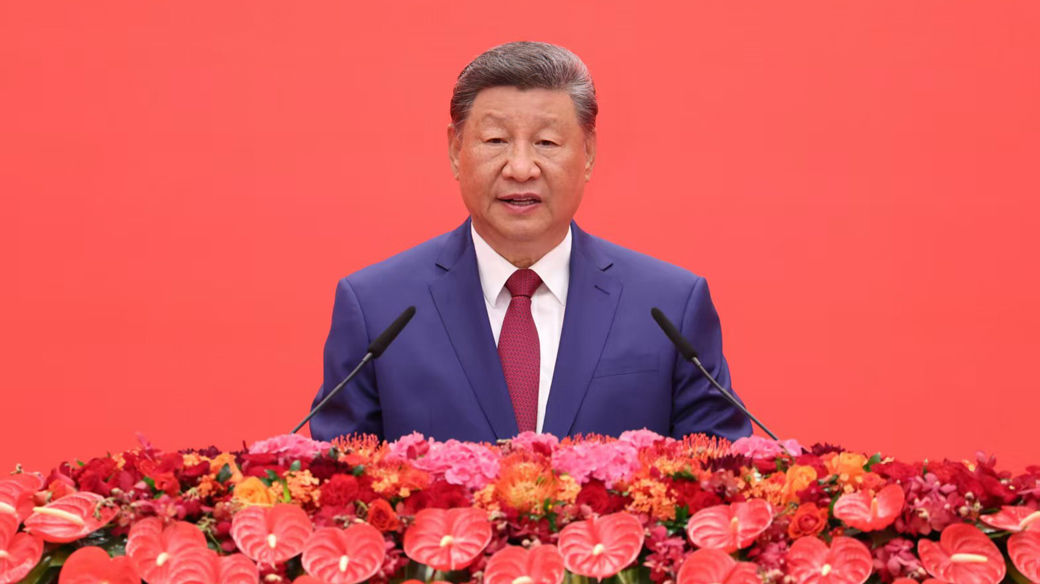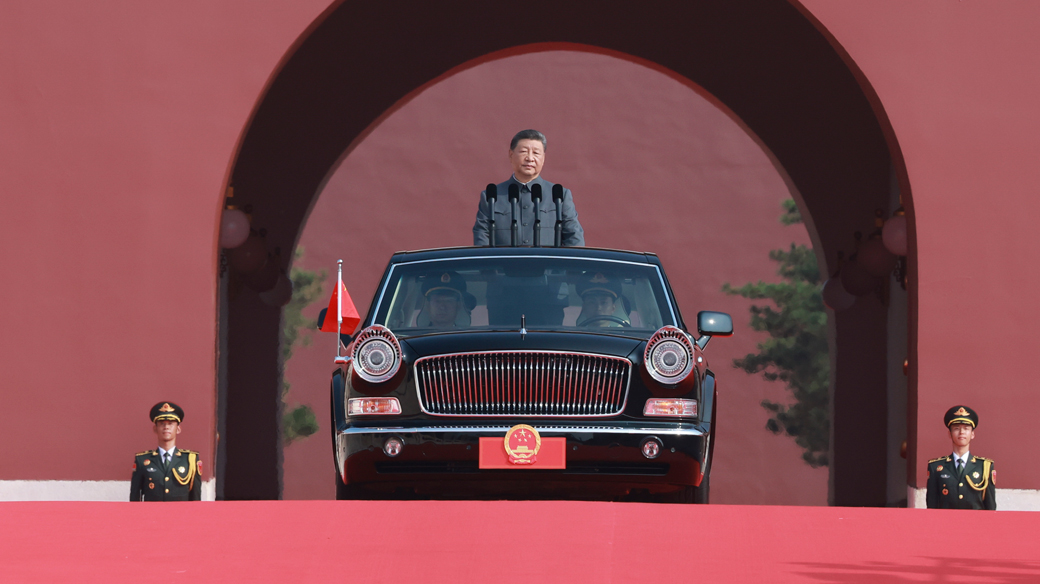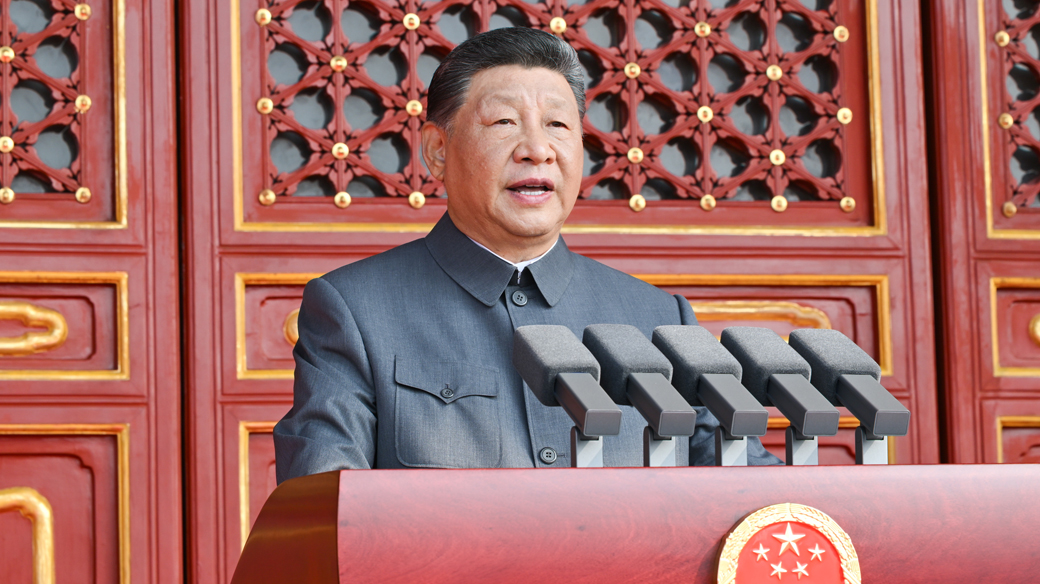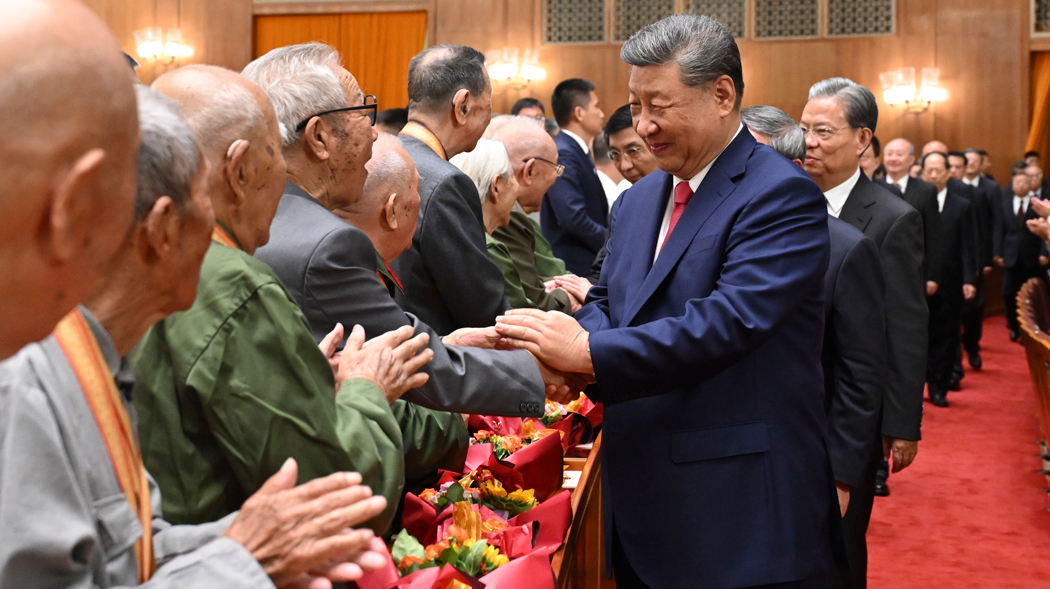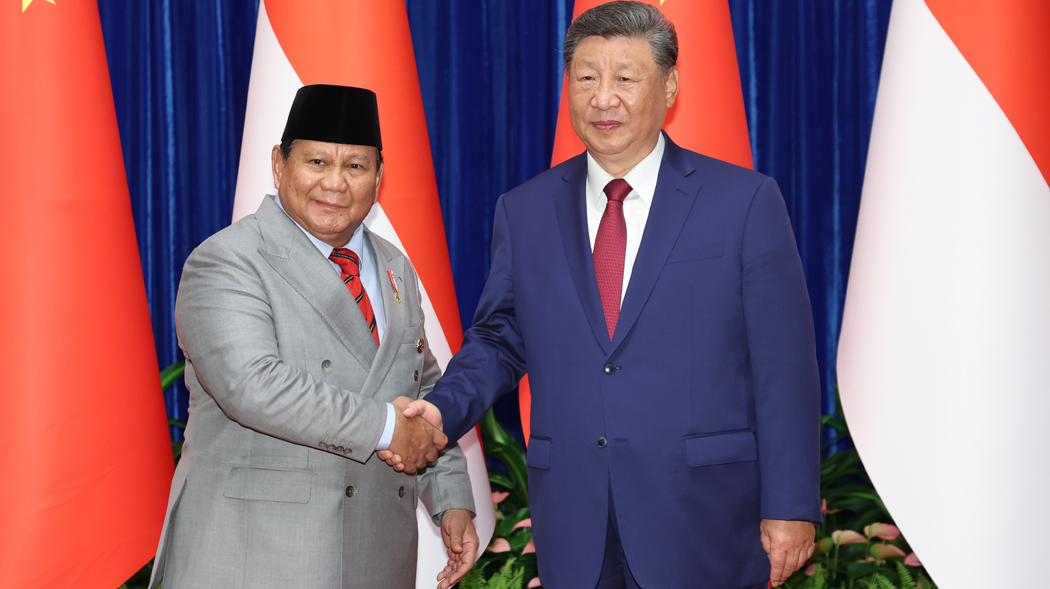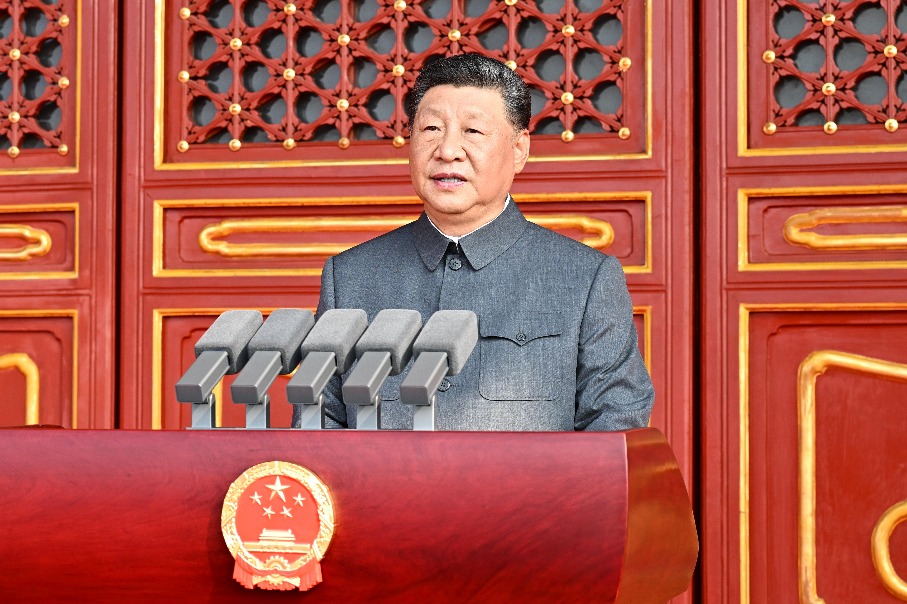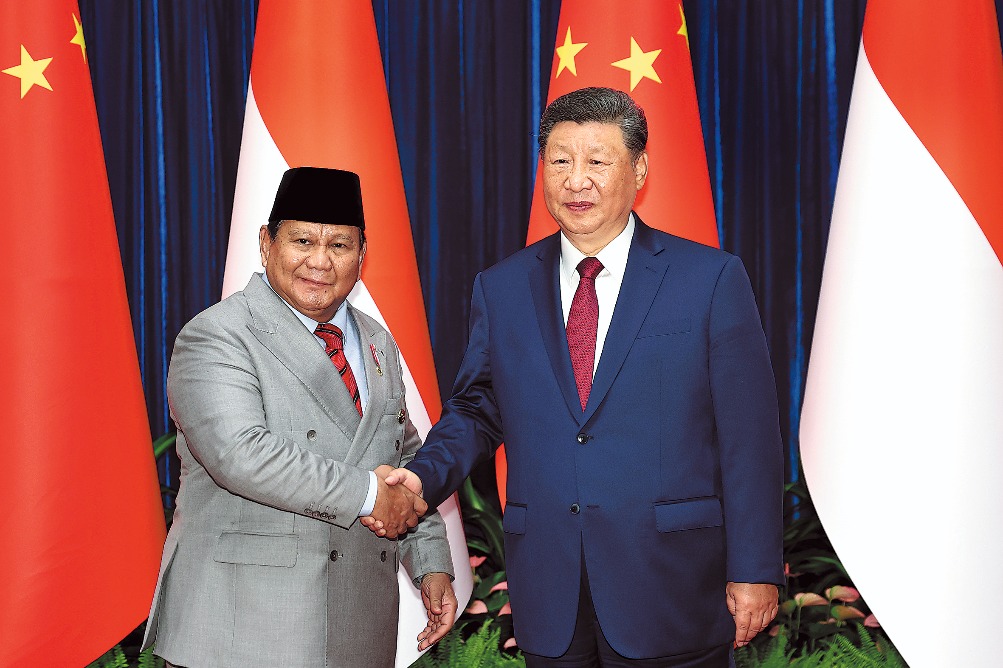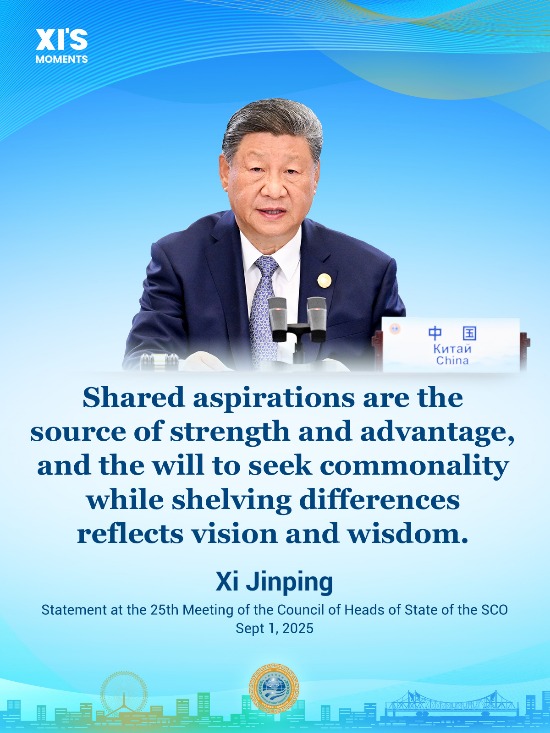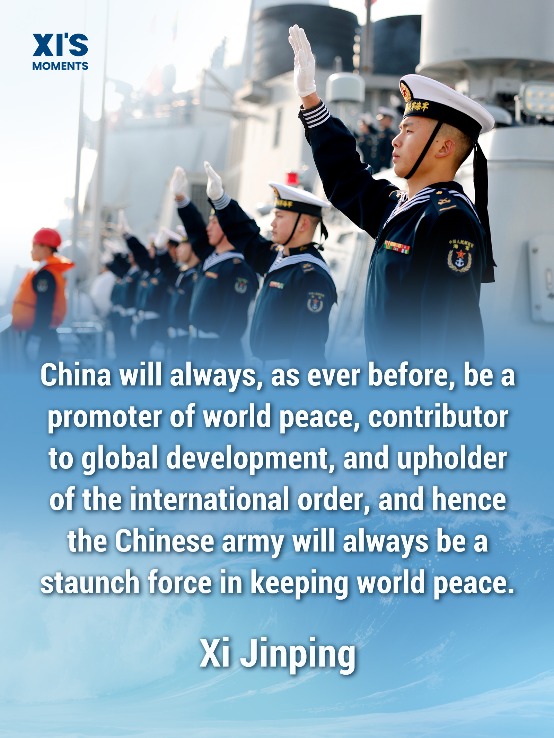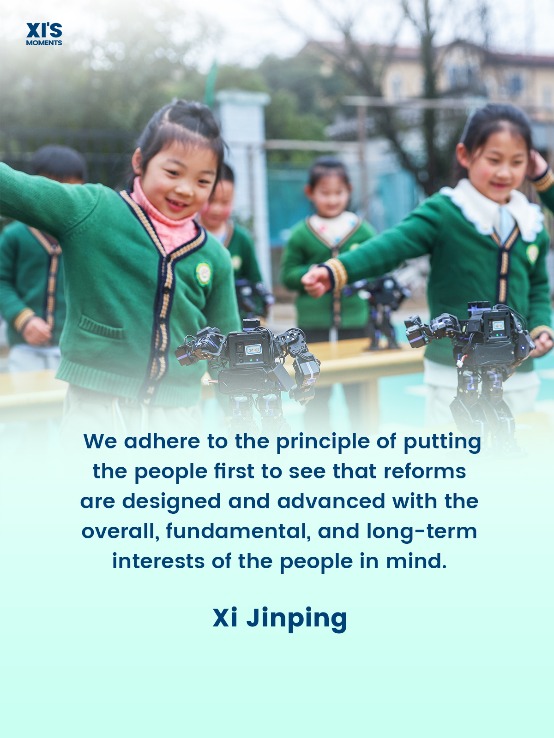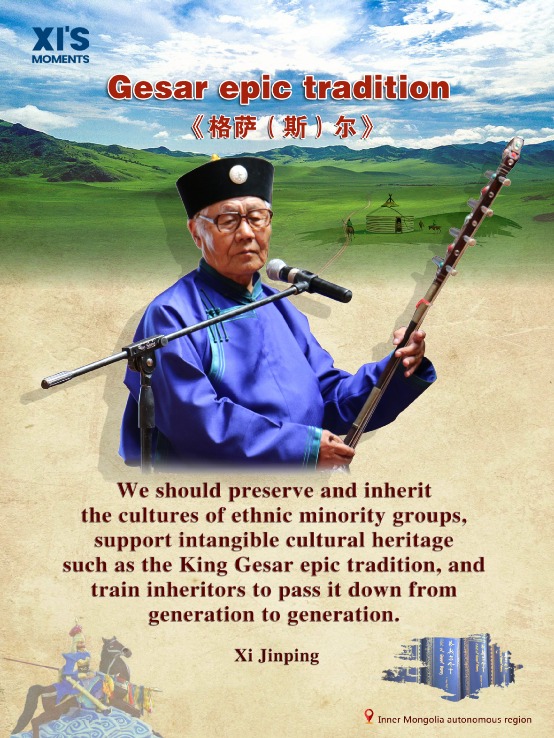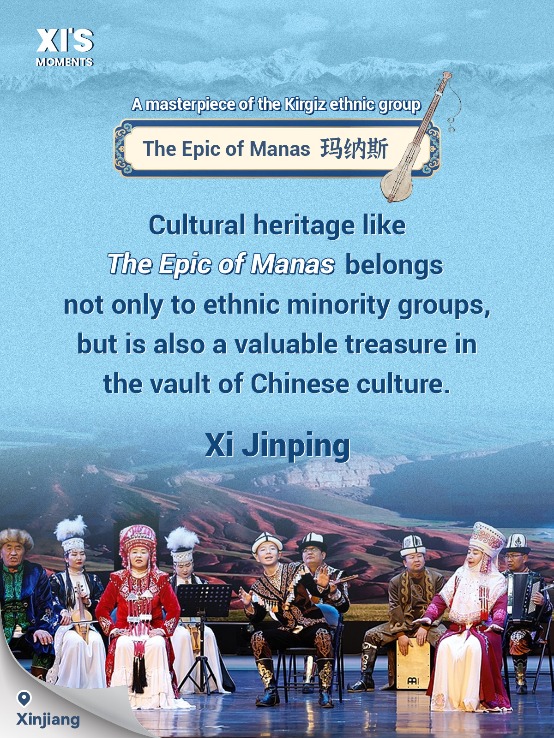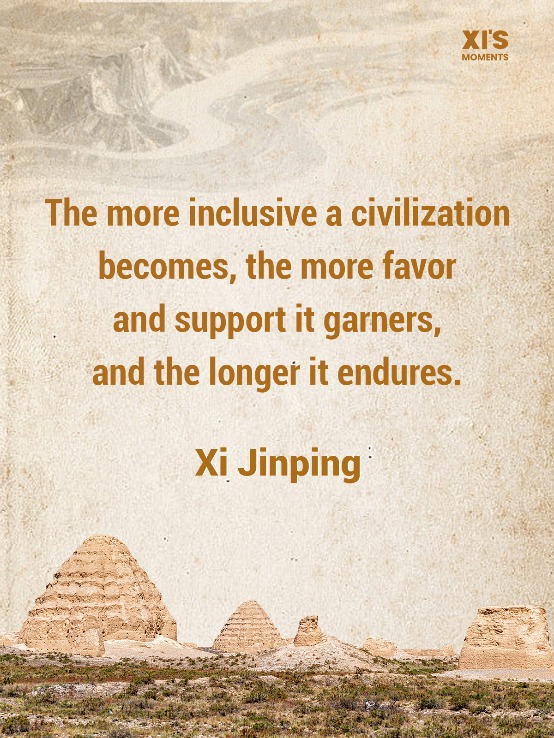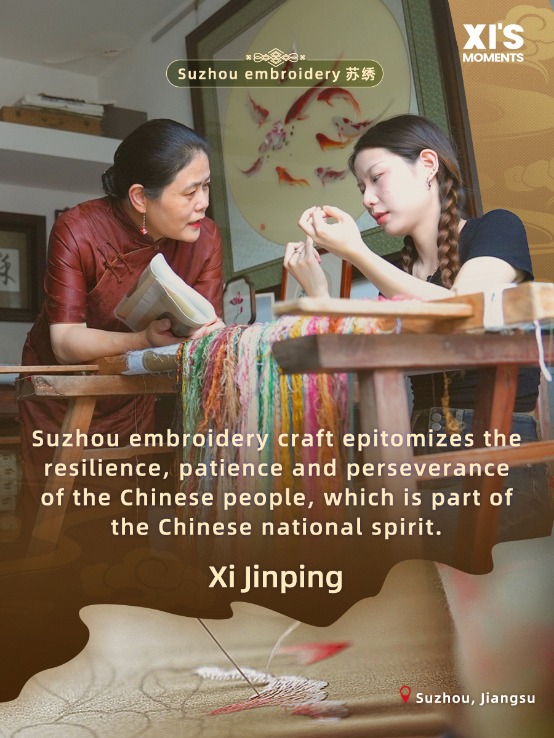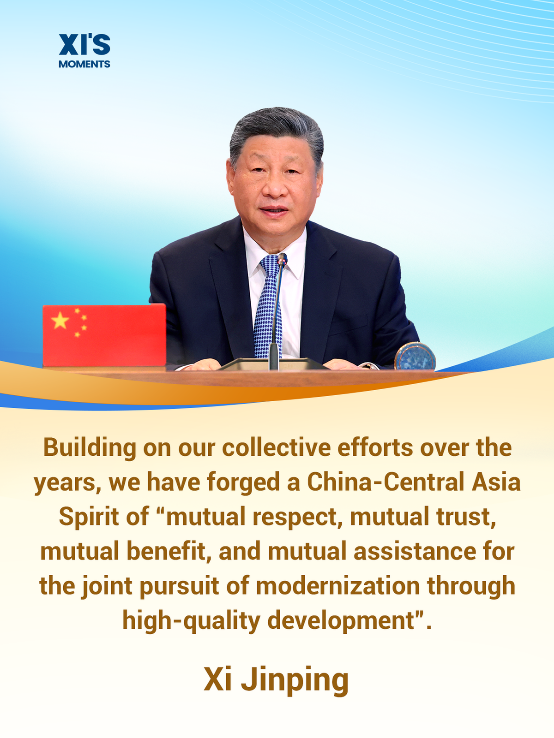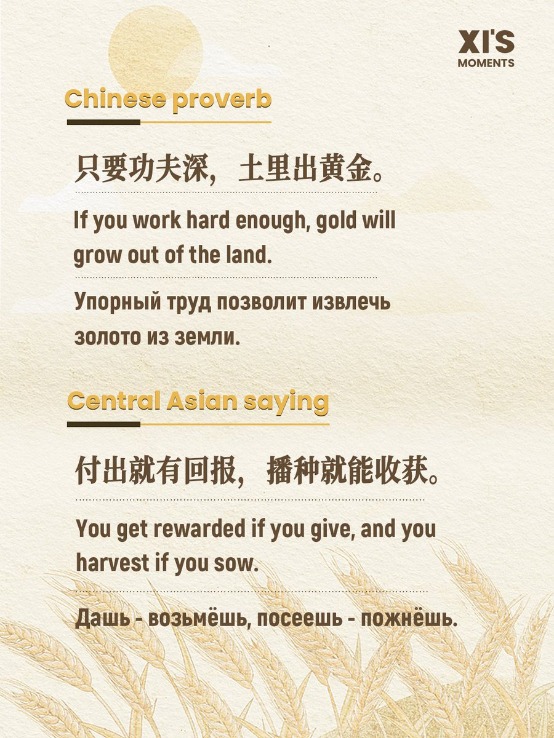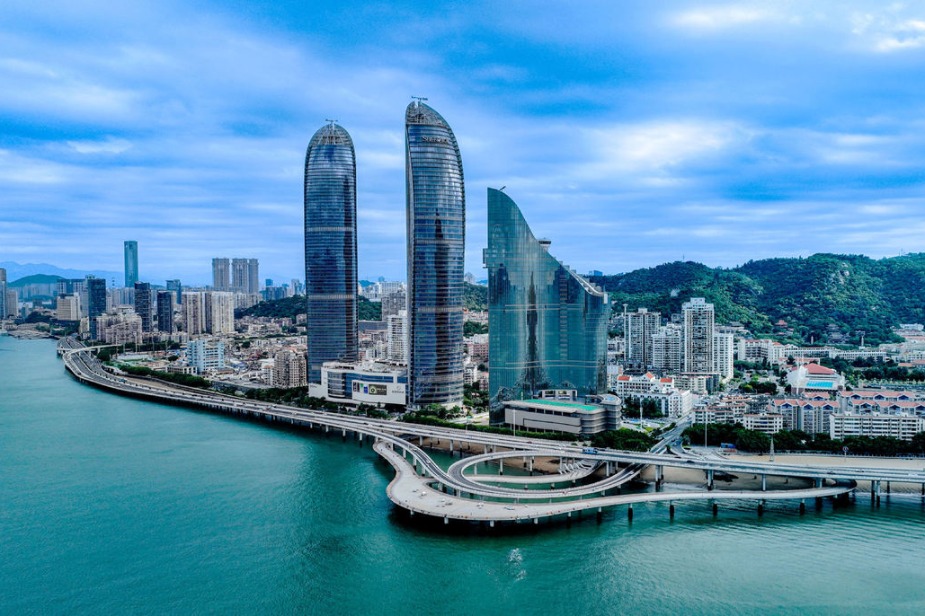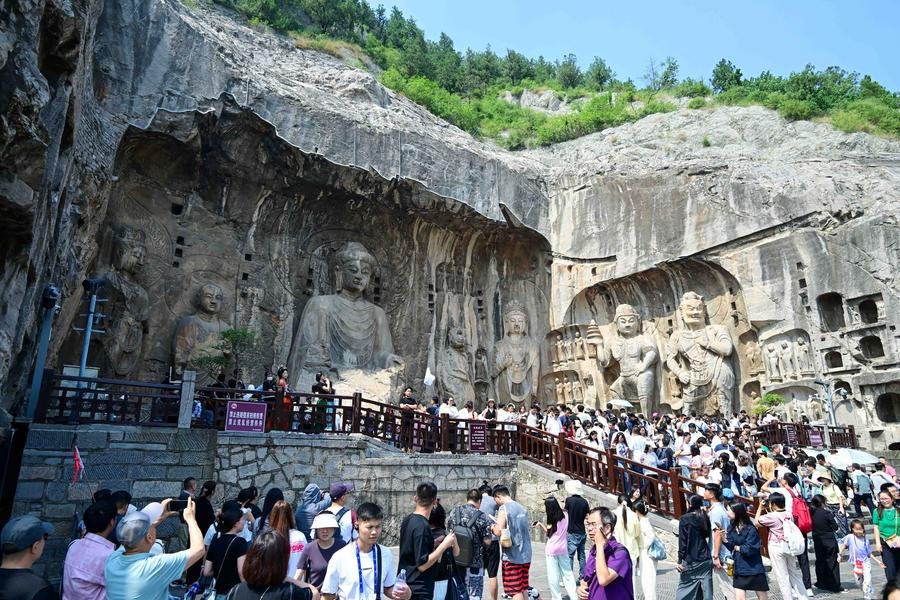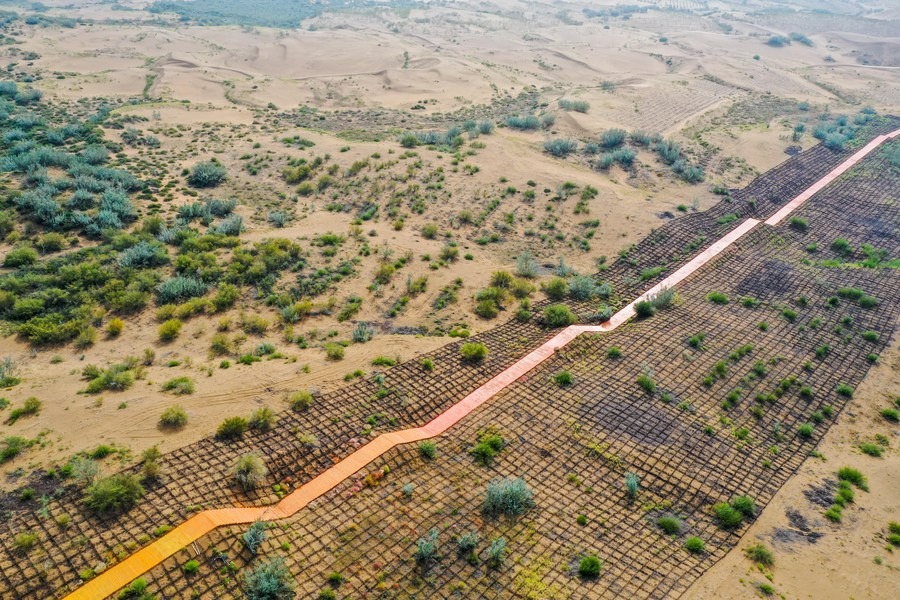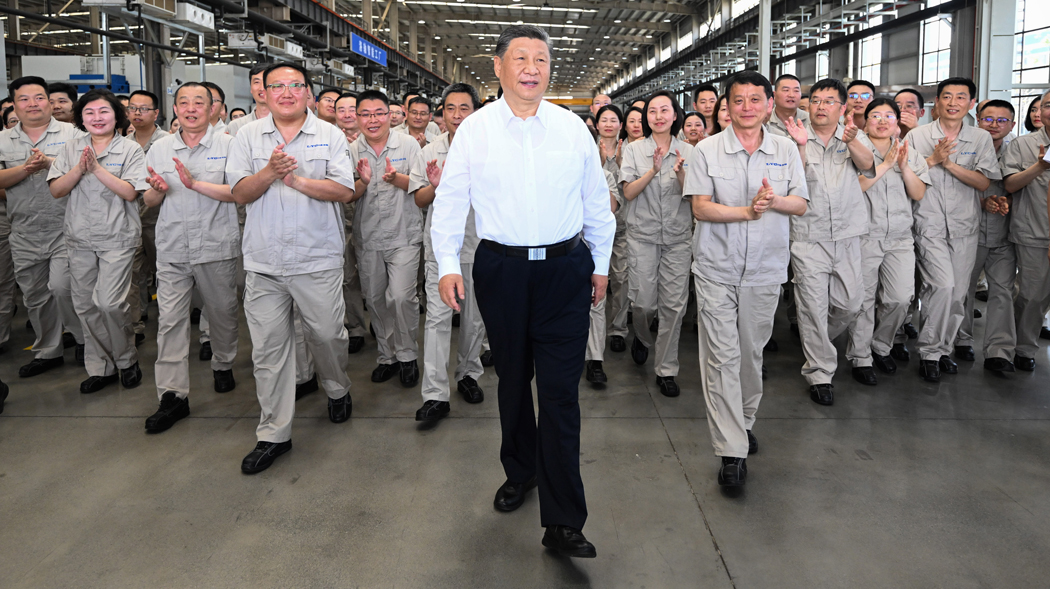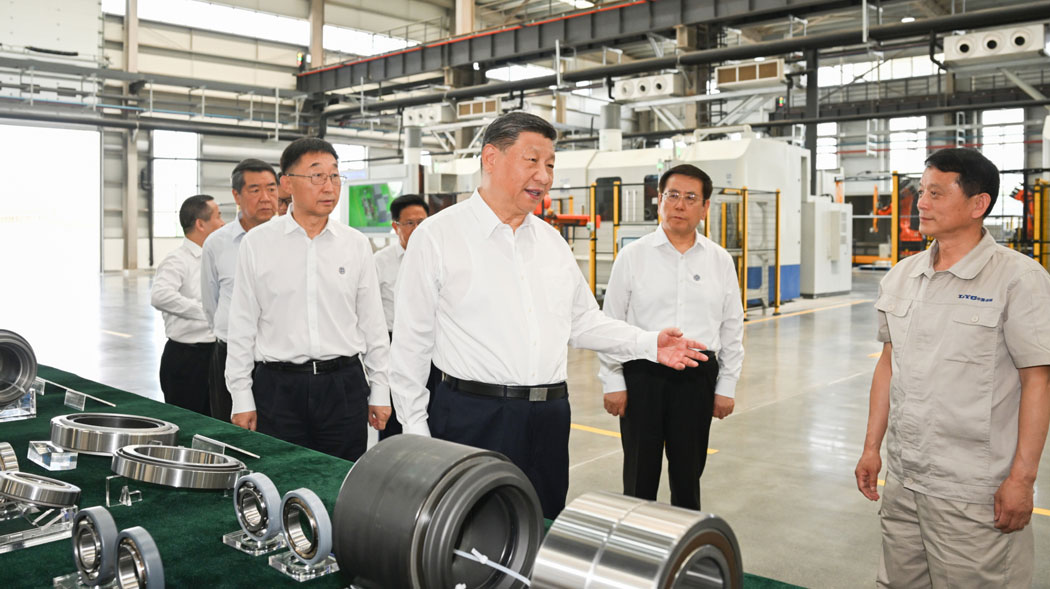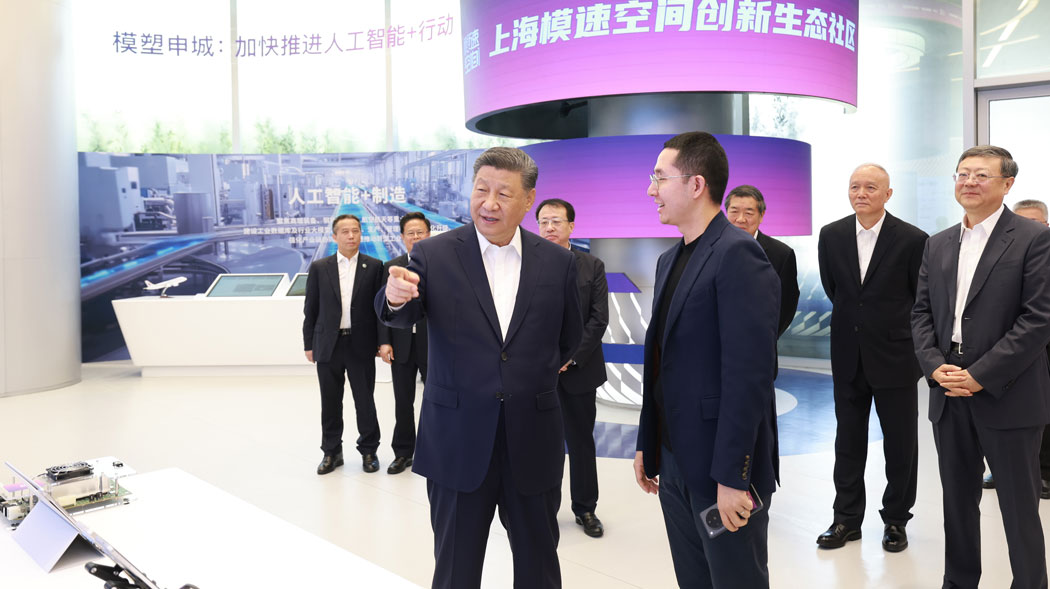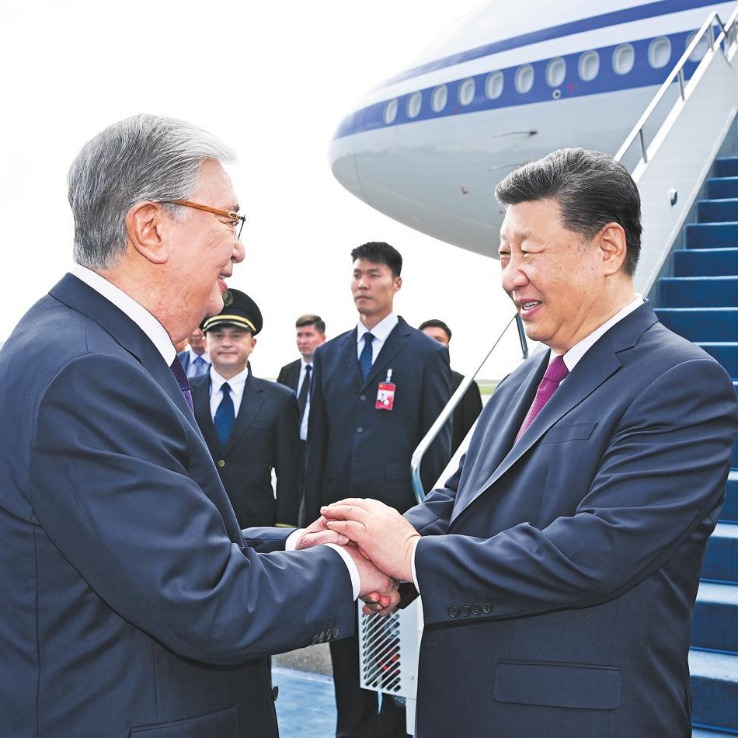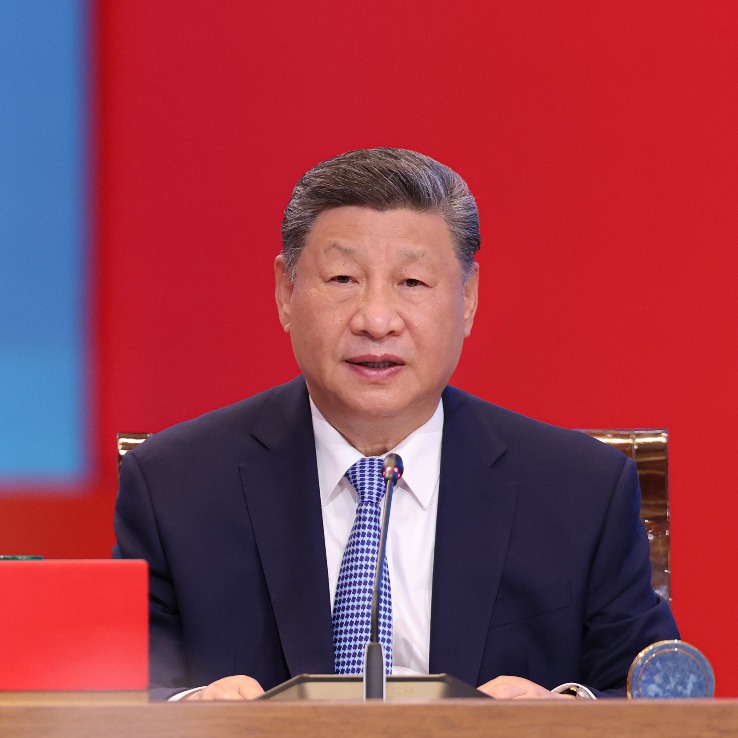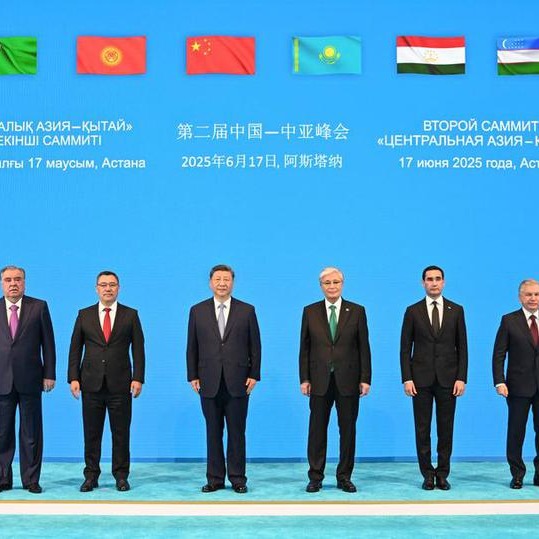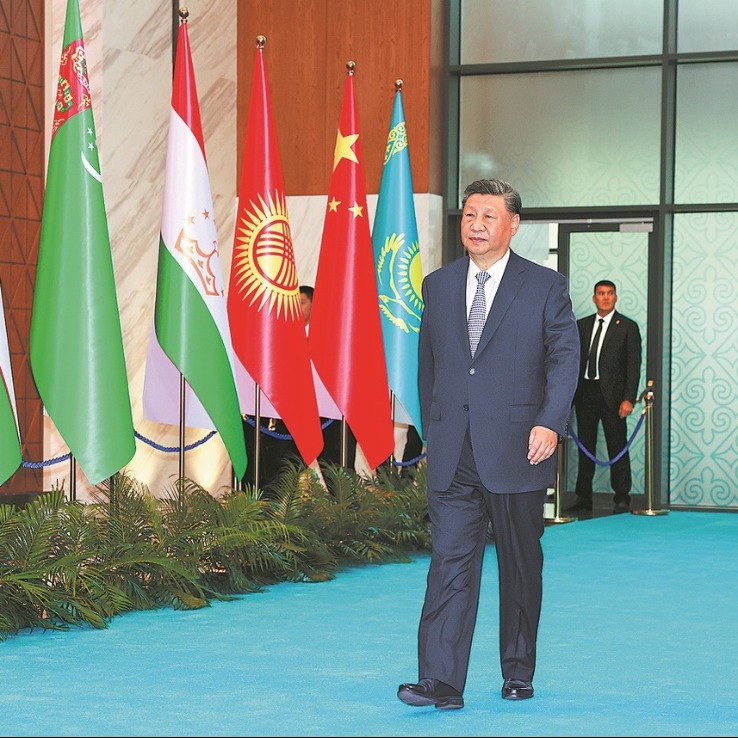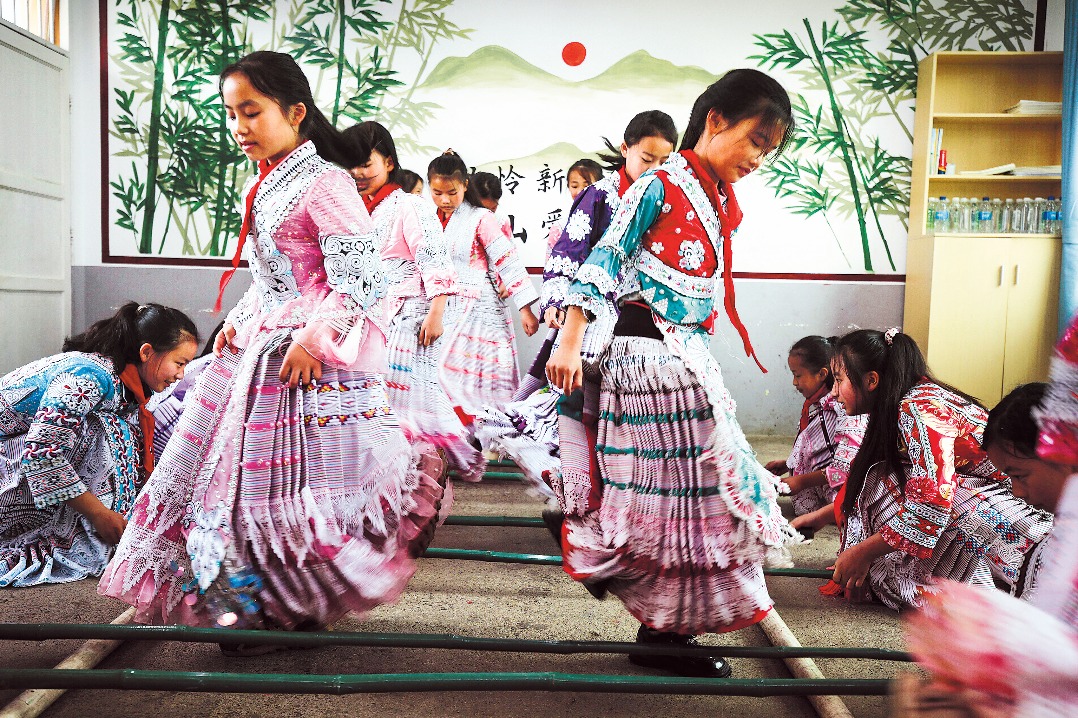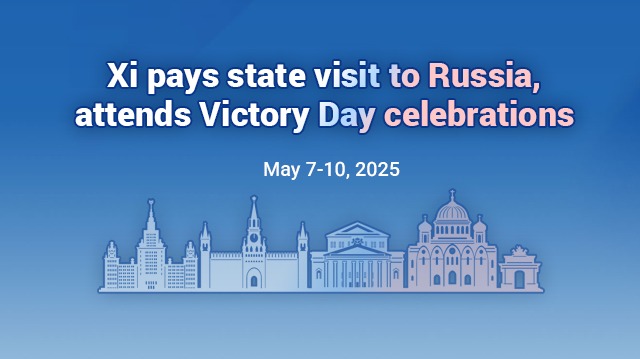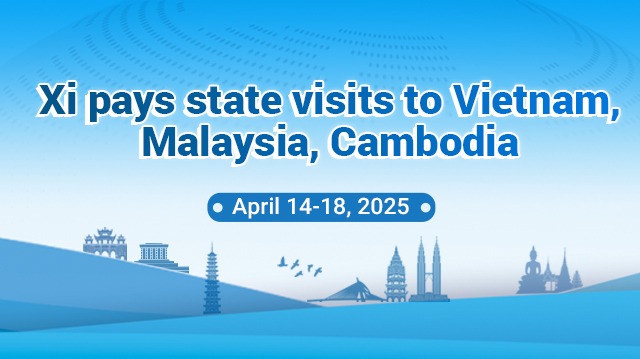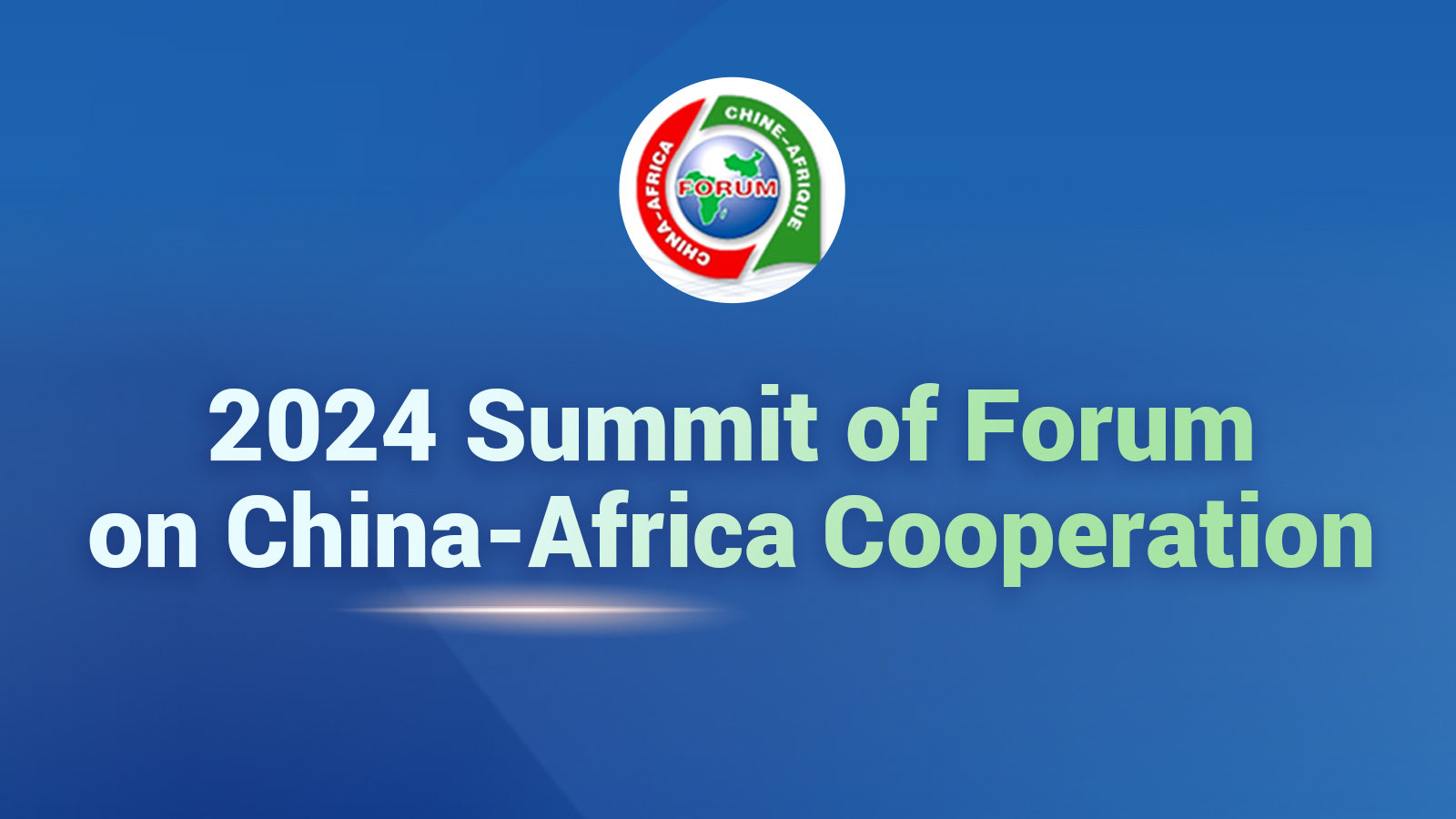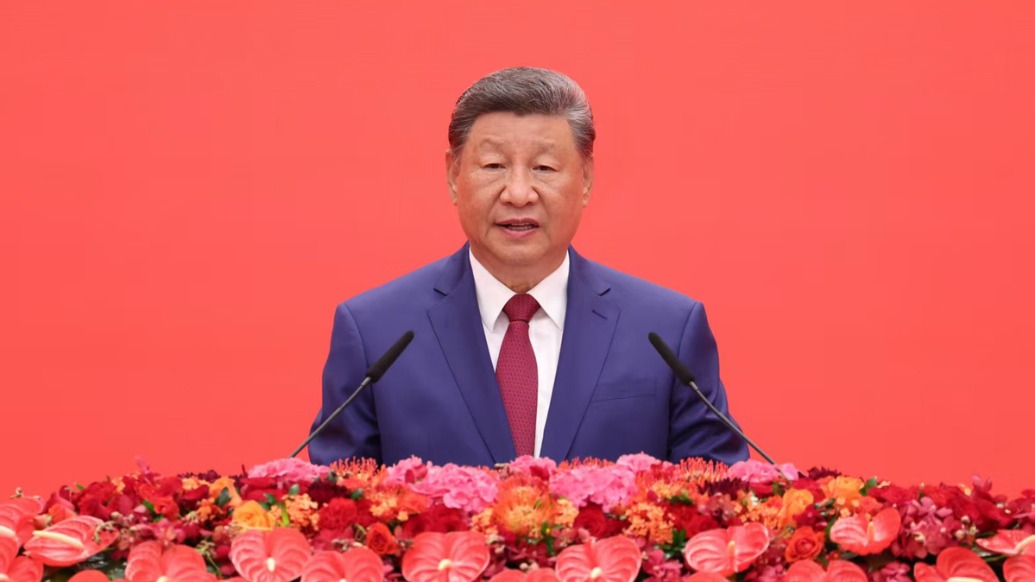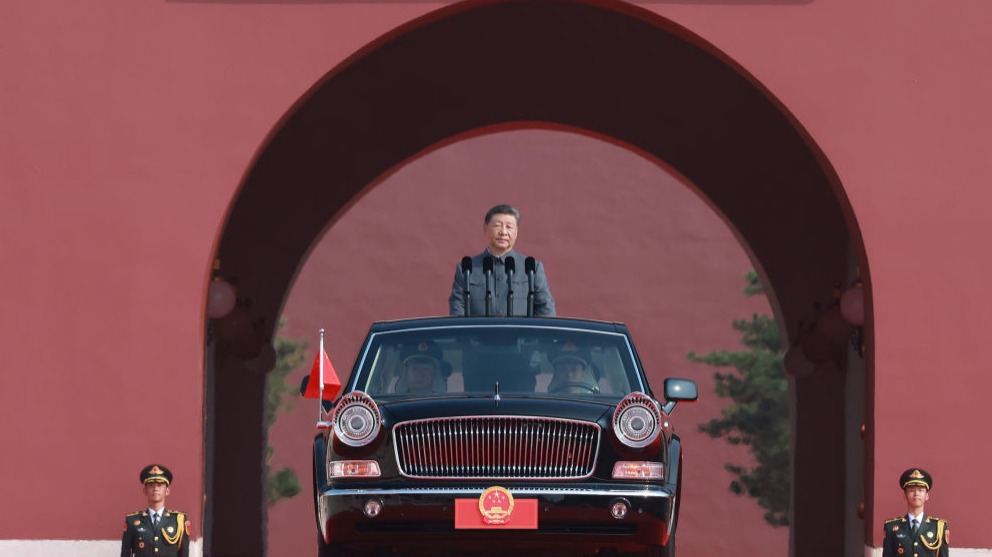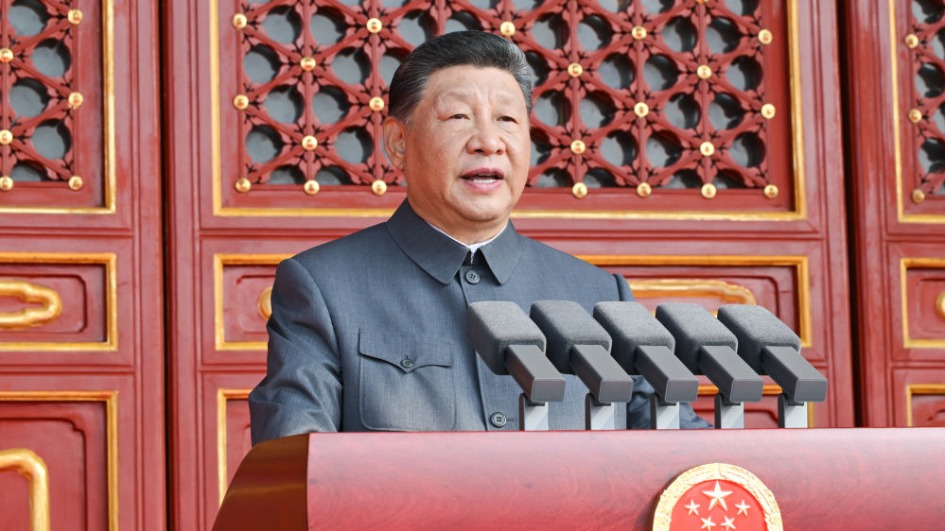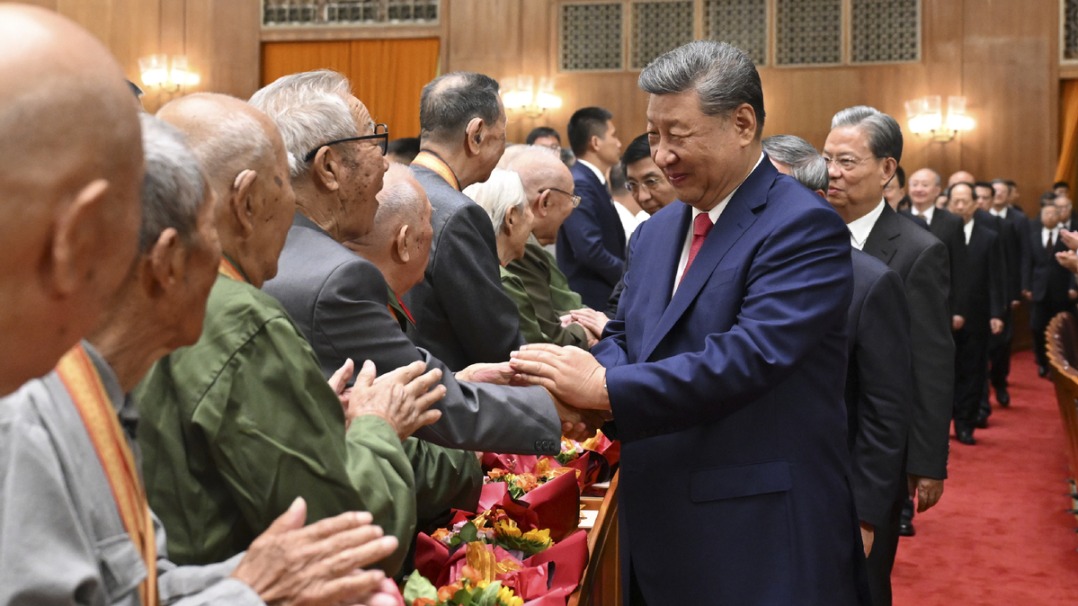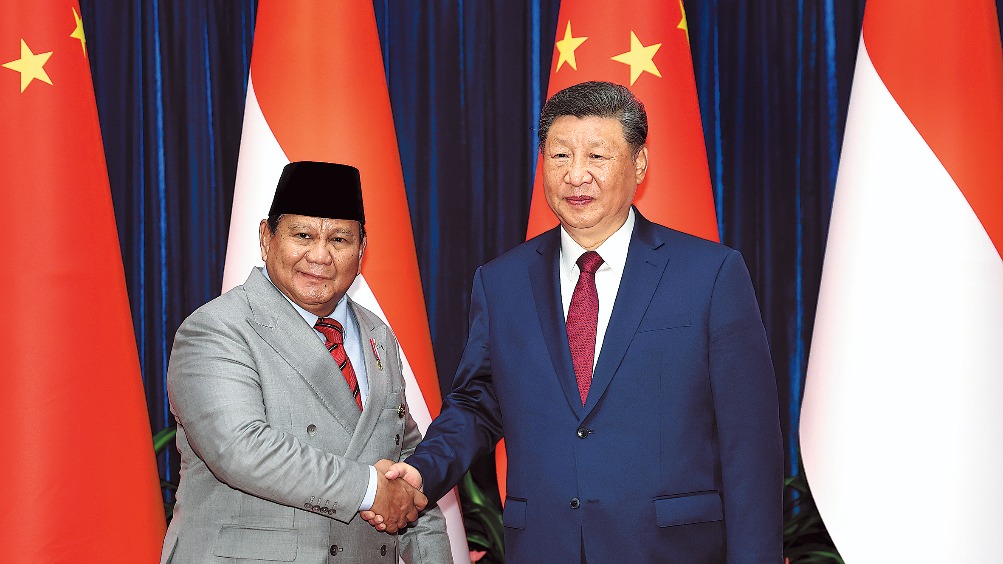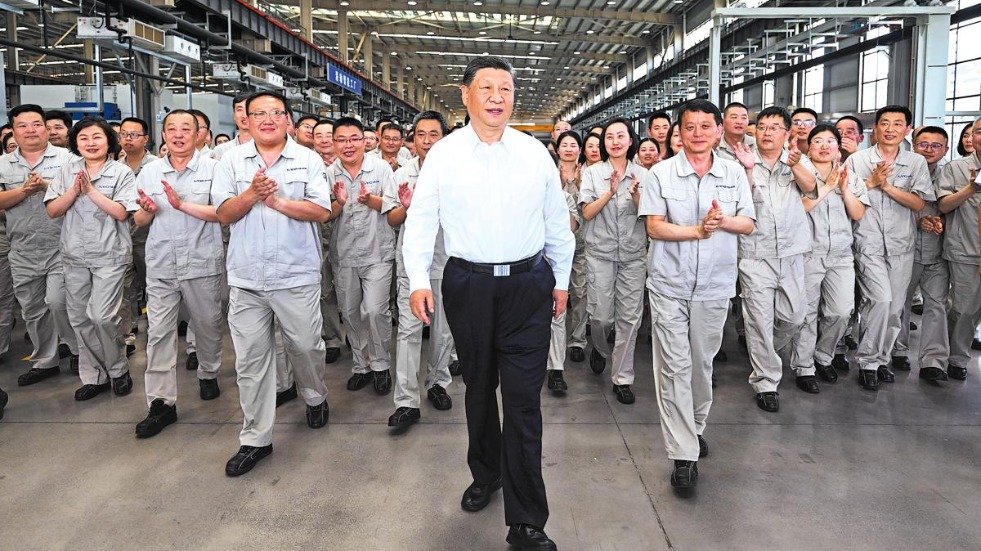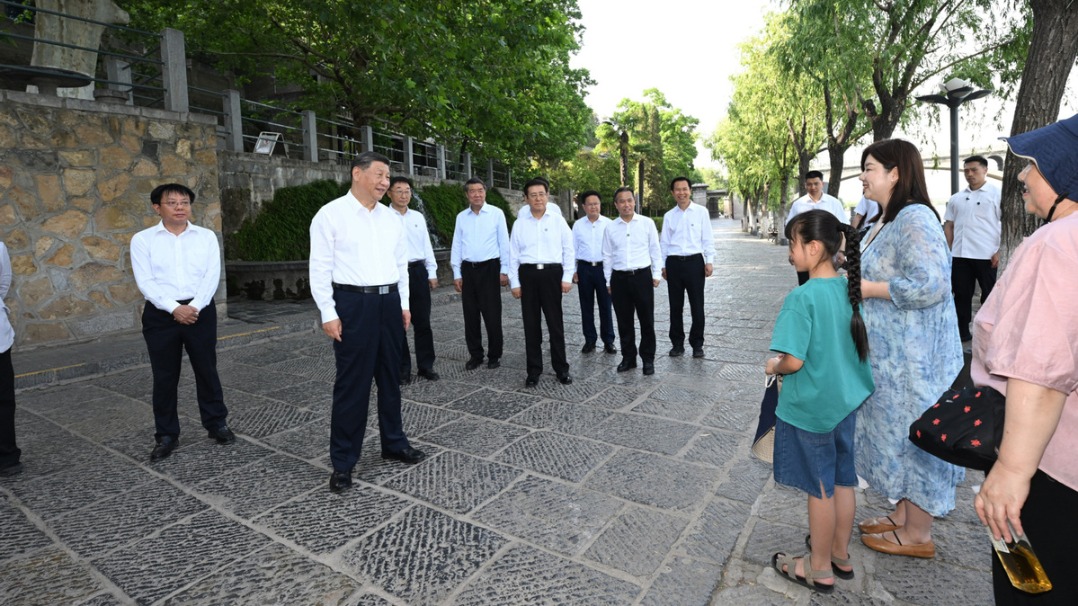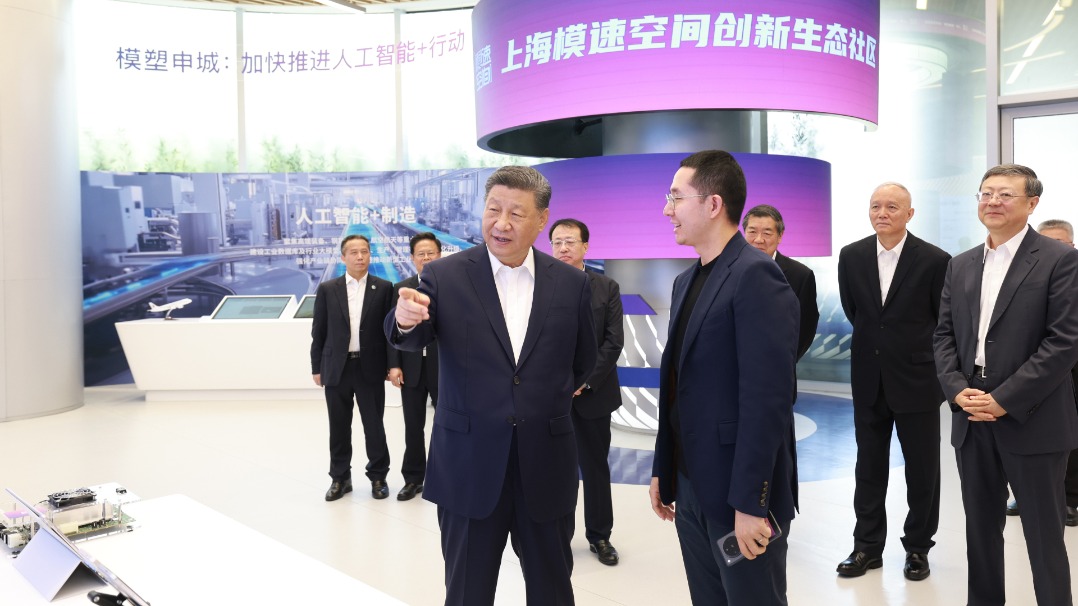
- Full text of Xi Jinping's speech at the 'Shanghai Cooperation Organization Plus' Meeting
- Full text of Xi Jinping's speech at 25th Meeting of Council of Heads of State of SCO
- Full text: Toast by Chinese President Xi Jinping at welcoming banquet of SCO Tianjin Summit
- Full text of Xi Jinping's congratulatory letter to session of All-China Youth Federation and congress of All-China Students' Federation
- Full text of Xi's keynote speech at second China-Central Asia Summit
- Full Text: President Xi's keynote speech at the opening ceremony of the fourth ministerial meeting of the China-CELAC Forum
- Full text of Xi's signed article in Russian media
- Full text of Xi's signed article in Cambodian media
- Full text of Xi's signed article in Malaysian media
- Xi calls for deepening China-Malaysia friendship in signed article
TIANJIN -- President Xi Jinping delivered a speech at the "Shanghai Cooperation Organization (SCO) Plus" Meeting in North China's port city of Tianjin Monday afternoon.
The following is the full text of the speech:
Pooling the Strength of the Shanghai Cooperation Organization
To Improve Global Governance
Statement by H.E. Xi Jinping
President of the People's Republic of China
At the "Shanghai Cooperation Organization Plus" Meeting
Tianjin, September 1, 2025
Distinguished Colleagues,
This year marks the 80th anniversary of the victory of the World Anti-Fascist War and the founding of the United Nations. It is a milestone prompting us to remember the past and create a better future together. Eighty years ago, the international community learned profound lessons from the scourge of two world wars and founded the United Nations, thus writing a new page in global governance. Eighty years later, while the historical trends of peace, development, cooperation and mutual benefit remain unchanged, the Cold War mentality, hegemonism and protectionism continue to haunt the world. New threats and challenges have been only increasing. The world has found itself in a new period of turbulence and transformation. Global governance has come to a new crossroads.
History tells us that at difficult times, we must uphold our original commitment to peaceful coexistence, strengthen our confidence in win-win cooperation, advance in line with the trend of history, and thrive in keeping pace with the times.
To this end, I wish to propose the Global Governance Initiative (GGI). I look forward to working with all countries for a more just and equitable global governance system and advancing toward a community with a shared future for humanity.
First, we should adhere to sovereign equality. We should maintain that all countries, regardless of size, strength and wealth, are equal participants, decision-makers and beneficiaries in global governance. We should promote greater democracy in international relations and increase the representation and voice of developing countries.
Second, we should abide by international rule of law. The purposes and principles of the UN Charter and other universally recognized basic norms of international relations must be observed comprehensively, fully and in their entirety. International law and rules should be applied equally and uniformly. There should be no double standards, and the house rules of a few countries must not be imposed upon others.
Third, we should practice multilateralism. We should uphold the vision of global governance featuring extensive consultation and joint contribution for shared benefit, strengthen solidarity and coordination, and oppose unilateralism. We should firmly safeguard the status and authority of the UN, and ensure its irreplaceable, key role in global governance.
Fourth, we should advocate the people-centered approach. We should reform and improve the global governance system to ensure that the people of every nation are the actors in and beneficiaries of global governance, so as to better tackle the common challenges for mankind, better narrow the North-South gap, and better safeguard the common interests of all countries.
Fifth, we should focus on taking real actions. We should adopt a systematic and holistic approach, coordinate global actions, fully mobilize various resources, and strive for more visible outcomes. We should enhance practical cooperation to prevent the governance system from lagging behind or being fragmented.
Colleagues,
The founding declaration and the Charter of the Shanghai Cooperation Organization made it clear at the outset that we should promote a more democratic, just and equitable international political and economic order. Over the past 24 years, the SCO has adhered faithfully to the Shanghai Spirit of mutual trust, mutual benefit, equality, consultation, respect for diversity of civilizations, and pursuit of common development. We have discussed regional affairs together, built platforms and mechanisms together, and benefited from cooperation together. We have also initiated many new global governance concepts and put them into practice. The SCO has increasingly become a catalyst for the development and reform of the global governance system.
In response to the once-in-a-century transformations unfolding faster across the world, the SCO should step up to play a leading role and set an example in carrying out the GGI.
We should contribute to safeguarding world peace and stability. With a vision for common security, SCO member states have signed the Treaty on Long-Term Good-Neighborliness, Friendship and Cooperation, conducted effective security cooperation, and maintained overall stability in the region. We should continue to uphold the principles of non-alliance, non-confrontation and not targeting any third party. We should combine our efforts in addressing various threats and challenges, give full play to the newly established SCO Universal Center for Countering Security Challenges and Threats and the SCO Anti-drug Center, and build a community of common security in the region. We should remain a force for stability in this volatile world.
We should step up to take the responsibility for open cooperation across the globe. SCO member states have rich energy resources, big markets and strong internal driving forces, and we are contributing a rising share to world economic growth. We should continue to dismantle walls, not erect them; we should seek integration, not decoupling. We should advance high-quality Belt and Road cooperation, and push for a universally beneficial and inclusive economic globalization.
China will readily share the opportunities of its vast market, and continue to implement the action plan for high-quality development of economic and trade cooperation within the SCO family. China will establish three major platforms for China-SCO cooperation in energy, green industry, and the digital economy, and will set up three major cooperation centers for scientific and technological innovation, higher education, and vocational and technical education. We will work with fellow SCO countries to increase the installed capacity of photovoltaic and wind power each by 10 million kilowatts in the next five years. We are ready to build with all sides the artificial intelligence application cooperation center, and share the dividends of progress in AI. We welcome all parties to use the Beidou Satellite Navigation System and invite countries with relevant capacities to take part in the International Lunar Research Station project.
We should set an example in championing the common values of humanity. Among SCO member states, cultural exchanges are packed with highlights, people-to-people interactions are frequent and robust, and different civilizations radiate their unique splendor. We should continue to promote exchanges and mutual learning among civilizations, and write brilliant chapters of peace, amity and harmony among countries different in history, culture, social system and development stage.
China will host and ensure the success of the SCO Political Parties Forum, the SCO Green and Sustainable Development Forum, and the SCO Forum on Traditional Medicine. In the next five years, China will treat 500 patients with congenital heart disease, perform 5,000 cataract operations, and carry out 10,000 cancer screenings for other SCO countries.
We should act to defend international fairness and justice. In compliance with the principles of justice and fairness, SCO member states have engaged constructively in international and regional affairs, and upheld the common interests of the Global South. We should continue to unequivocally oppose hegemonism and power politics, practice true multilateralism, and stand as a pillar in promoting a multipolar world and greater democracy in international relations.
China supports the SCO in expanding cooperation with other multilateral institutions, such as the UN, ASEAN, the Eurasian Economic Union, and the Conference on Interaction and Confidence Building Measures in Asia, to jointly uphold the international economic and trade order and improve global and regional governance.
Colleagues,
An ancient Chinese philosopher said of the importance of principles, "Uphold the Great Principle, and the world will follow." In two days, China will commemorate solemnly the 80th anniversary of the victory of the Chinese People's War of Resistance Against Japanese Aggression and the World Anti-Fascist War. Many colleagues will join us in Beijing. We are ready, together with all parties, to uphold courageously the great principle and the common good of the world, promote a correct historical perspective on World War II, resolutely safeguard the fruits of our victory in the War, and deliver more benefits to the entire humanity through the reform of the global governance system and the building of a community with a shared future for humanity.
Thank you.
Registration Number: 130349

